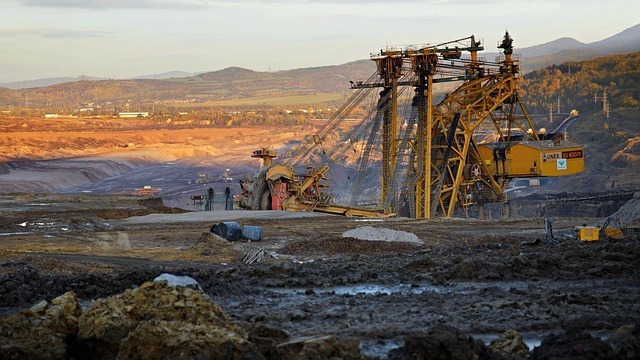
Understanding the Criticality of Mining in the Energy Transition
As the world pivots towards sustainable energy, an intricate web of choices unfolds around the mining industry that plays a pivotal role in this transition. In the enlightening podcast episode titled From The War Below to the Grid Above: Mining’s Impact on Green Energy, journalist Earnest Shider helps us understand the delicate balance between the demand for essential minerals and the environmental and ethical considerations that come with mining them. With an expansive exploration of critical minerals like lithium, copper, and nickel, he underscores the pressing need to address the complexities involved without glossing over the realities of mineral extraction.
Challenges in Sourcing and Sustainability
Shider captures the essential notion that our digital lives—focused on electric vehicles (EVs), phones, and laptops—heavily rely on minerals sourced from various corners of the globe. However, the pathway to sustainable energy is littered with challenges. The growing demand for critical minerals, often at odds with environmental concerns, leads to a thought-provoking dilemma: Should we exploit resources at the expense of nature and indigenous cultures? While the need is indisputable, the choices involved are anything but straightforward. Readers are encouraged to consider the societal stakes involved in sourcing metals, especially as the repercussions of mining can linger long after extraction.
The Regulatory Landscape: A Roadblock to Progress
The regulatory environment surrounding mining is antiquated and often poorly coordinated, leading to stalling projects and mixed signals from the government, as Shider aptly describes. For instance, the challenges facing the Twin Metals project in Minnesota show how fluctuating policies can deter investment in the very industries sought to underpin our green transition. The consistent reassessment and conflict among different governmental factions demonstrate the complexity of aligning mining operations with sustainable goals. As highlighted by Shider, reform is urgently needed to bring legal frameworks into the 21st century. Without proper alignment, we risk further complicating the already intricate mining landscape.
Recycling: An Alternative or a Myth?
Another layer to this discussion is the role of recycling in lessening the demand for new mineral extraction. While recycling is projected to be part of the future economy, Shider raises key logistical challenges that limit its immediate effectiveness. From the transport of used batteries to the complex recovery processes, recycling cannot singularly address the growing demand. It's clear that we must balance recycling efforts with direct extraction, leading to a nuanced view of how we can ensure that both aspects contribute to a more sustainable approach.
Global Dependencies and Future Implications
Essentially, the global supply chain's philosophical underpinnings are tested as certain countries, namely China, dominate the critical minerals sector. Tied into this dynamic is the possibility of economic leverage through resource control, widening the gap between demand and ethical sourcing. This leads us to grapple with questions about the future: How do we secure our critical resources without compromising ethical practices?
Local Perspectives: The Human Element
The human stories behind mining operations are essential, bridging the gap between consumer electronics and the communities who feel the impacts of mining. From child labor in the Democratic Republic of the Congo for cobalt mining to the environmental impacts in regions where mining takes place, understanding the human element helps draw a comprehensive picture of the issue. We must consider who bears the brunt of our growing mineral demands and how these decisions shape not only our planet but the lives of countless individuals.
Empower Your Perspectives as an Investor
For individual investors and businesses alike, being informed about the intricacies of mining and its implications for green energy is crucial in making responsible investment decisions. Understanding the dynamic between ethical mineral sourcing and the pressing demands of our technological world can empower stakeholders to advocate for better practices, pushing companies to align with sustainable and equitable operations. As we look towards the future of energy and innovation, engaging with these complexities is necessary for fostering a more resilient and ethical investment landscape.
Time for a Collective Dialogue
Shider's work exemplifies the need for a larger conversation about the choices we face regarding mining and resource extraction. As environmental advocates, policymakers, and everyday citizens, we must engage in dialogue that weighs the burdens of extraction against the urgency of energy transition. By being informed and proactive, we can collectively drive change that honors both sustainable practices and our technological future.
As illustrated throughout this analysis of From The War Below to the Grid Above, the discussion on mining’s role in green energy is vital for all of us. Whether you're an investor looking to make informed decisions or simply someone invested in the future of our planet, understanding the layers of supply, demand, sustainability, and ethical sourcing can inform greater engagement in these crucial conversations.
In conclusion, it’s essential that, in the face of these complexities, we advocate for clearer laws, smarter recycling practices, and informed investment choices. Join in the conversation, research the critical minerals you use daily, and let your values guide your engagement with this vital industry.
 Add Row
Add Row  Add
Add 




Write A Comment